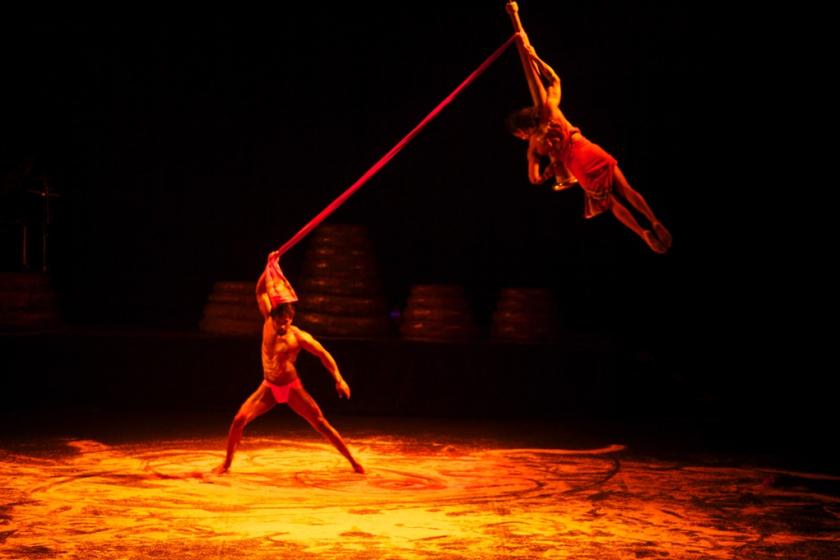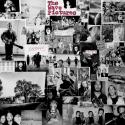I hadn’t been through Mumbai (although lots of people there still call it Bombay) for a while – I once Iived in a beach house here for several months in Juhu while working on a fairly insane project with, among others, Boy George, Bollywood playback goddess Asha Bhohle, and the brilliant film composer RD Burman called the West India Company. The whole thing was like Spinal Tap goes East – money was wasted, people went crazy, gangsters came round, the cook set fire to himself, everyone got dysentery. That story is for another time, perhaps.
These days the city, and not just me, has calmed down slightly – the airport isn’t such a shocking free-for-all and the autorickshaws have been banned from the centre, but it still makes London seem like a tranquil backwater in terms of noise and energy. Like New York, people go there to make it and there is no safety net if you don’t.
The first person I saw in Mumbai was Badri Nathan whose wife Vasumathi is a wonderful Carnatic singer I’d caught at the Fes Festival. Vasumathi had done her back in, so Badri and I went off to eat at a classic Mughal Restaurant called Khyber. Sitting a couple of tables away was Shekhar Kapur, the director of, among other things, the Oscar-winning Elizabeth: The Golden Age. He kindly asked me to join his table. I possibly ruined the moment by suggesting that he owed me some money.
When I first met him in 1990 he was less known – he’d done an amazing Indian version of The Invisible Man and he was our next door neighbour in Juhu. We thought we should do a film to go with the music we were doing in the West India Company – I talked through some ideas with Shekhar and spent a week developing the idea and writing up a treatment, living in the YMCA in Juhu, giving it the not very original title of Bombay Dreams. Nothing happened with the project, until a musical of the same title with some similar story lines ended up being produced as a West End musical produced by Andrew Lloyd Webber with Shekhar’s name attached to it. Shekhar anyway was perfectly charming, and gave me his phone and email, so I hope to clear that one up as I like Shekhar.
Dhrupad has been an endangered music form of late
The following couple of days were spent mainly rushing around the city meeting musicians, including the wonderful veena player Baha’uddin Dagar (pictured, below), who can trace his family back to the Mughal courts of ten generations ago and performs the oldest type of classical music called dhrupad (the druphadis think the better known Hundustani classical music which came to the fore in the 17th century is a watered down form of the real thing and quite frankly a bit common). Dhrupad has been an endangered music form of late, and it’s not clear the form will last the next couple of generations, although there are more students than a decade or so ago (one student there had been studying ten years and was nearly up to the level of being allowed to perform live). Others were the esteemed tabla player Yogesh Samai and an amazing khyal singer called Manjusha Patil. All the above musicians will be appearing at the Darbar Festival at the Southbank in September.
 I had lunch in the august confines of The Cricket Club of India, with the fans whirring above and the expanses of green in front of us, with Pandit Arvind Parikh, who is not only a distinguished sitar player but a highly successful businessman who uses his business knowledge to try and organise classical musicians, a job like herding cats. But he did mention a project of his that looked like it might come off – he organised a delegation of musicians to meet the government to push for an idea that they should fund a hundred gurus , who have to agree to agree to teach five students each (only one would be a member of the guru’s family). A simple idea that could have enormous impact in keeping the traditions alive. He also made the pont that there was shrinking critical coverage of classical music in the newspapers - I suggested an artsdesk India.
I had lunch in the august confines of The Cricket Club of India, with the fans whirring above and the expanses of green in front of us, with Pandit Arvind Parikh, who is not only a distinguished sitar player but a highly successful businessman who uses his business knowledge to try and organise classical musicians, a job like herding cats. But he did mention a project of his that looked like it might come off – he organised a delegation of musicians to meet the government to push for an idea that they should fund a hundred gurus , who have to agree to agree to teach five students each (only one would be a member of the guru’s family). A simple idea that could have enormous impact in keeping the traditions alive. He also made the pont that there was shrinking critical coverage of classical music in the newspapers - I suggested an artsdesk India.
After coffee with the esteemed multi-genre singer Hariharan (you can read the interview here) and getting a couple of jackets made, I ended up at Mumbai’s hippest alternative club the Blue Frog with Sony Records dynamic exec Jayesh Veralkar. There was an all female band playing called Indiva – all great musicians, even if their version of John Lennon’s "Imagine" was perhaps ill-advised.
The next day, I swung through Chennai and ended up at a lecture on the veena given by Jayathi Kumaresh, a virtusoso on the instrument, at the Indian Institute of Technology on the outskirts of the city. I have no idea how the autorickshaw found this place, and the campus is vast – deer and monkeys were wondering around. It’s noticeable and heartening that so many top classical musicians these days are women – I also met the multi award-winning singer Sudha Ragunathan and the awesome sitarist Anupama Bhagwat (rather better than more celebrated sitarists like Anoushka Shankar) who brings the northern Hindistani classical style to concerts in the south. Dinner was with the debonair Paul Jacob, a music producer who also is an activist on behalf of exploited indigenous peoples of India, notably the Adivasis of Madhya Pradesh and Orissa whose livelihoods are threatened by modernisation. As the Kingfishers flowed, wild festivals and operas were planned.
The idea was to head to Kerala for a few days chill-out, but after a couple of days in the gorgeous south beach of Varkala, I headed to Kovalam to the celebrated Ayurvedic master Dr Shambu’s place Ayushya. He has a peerless reputation – and has effectively cured, to my knowledge, everything from alcoholism to rheumatoid arthritis. My visit coincided with a temple festival which started at 5 a.m. with very loud music every day (see drummers, below).The speakers were directly positioned outside Shambu’s place, so the tranquil stay I imagined was illusory.
 What was tranquil though was the amazing set-up by the Daksha Sheth dance company by a lake half an hours drive from Kovalam. Their rehearsal space is a naturally air conditioned place that stays remarkably cool as the temperatures approached 100 degrees. Daksha was a classical Orissa dancer who went a bit wayward and met an Australian hippie musician called Devisaro, a brilliant pianist who came to India in 1980 on a Buddhist quest and stayed in the country, having spent several years studying dhrupad music. Their show Shiva Shakti (see video, below) is on Monday at the Southbank as part of the current Alchemy Festival, and uses stunning aerial work, dramatic choreography and gorgeous music written by Devisaro and the couple’s son Tao.The lead dancer is Isha Sharvani, their daughter, who is not only the most astonishing aerialist you are likely to see, but has appeared in several Indian films and is something of a celeb in India these days. They are a family who have had a dream and they are realising it. Recommended – as is the Devisaro directed band Asima, who mix Western and Indian classical and other music in a highly original way, and have a foyer gig.
What was tranquil though was the amazing set-up by the Daksha Sheth dance company by a lake half an hours drive from Kovalam. Their rehearsal space is a naturally air conditioned place that stays remarkably cool as the temperatures approached 100 degrees. Daksha was a classical Orissa dancer who went a bit wayward and met an Australian hippie musician called Devisaro, a brilliant pianist who came to India in 1980 on a Buddhist quest and stayed in the country, having spent several years studying dhrupad music. Their show Shiva Shakti (see video, below) is on Monday at the Southbank as part of the current Alchemy Festival, and uses stunning aerial work, dramatic choreography and gorgeous music written by Devisaro and the couple’s son Tao.The lead dancer is Isha Sharvani, their daughter, who is not only the most astonishing aerialist you are likely to see, but has appeared in several Indian films and is something of a celeb in India these days. They are a family who have had a dream and they are realising it. Recommended – as is the Devisaro directed band Asima, who mix Western and Indian classical and other music in a highly original way, and have a foyer gig.
Information on the Darbar Festival, here
Tickets for Dakhsa Sheth and the Alchemy Festival, here.
Follow Peter Culshaw on Twitter















Add comment